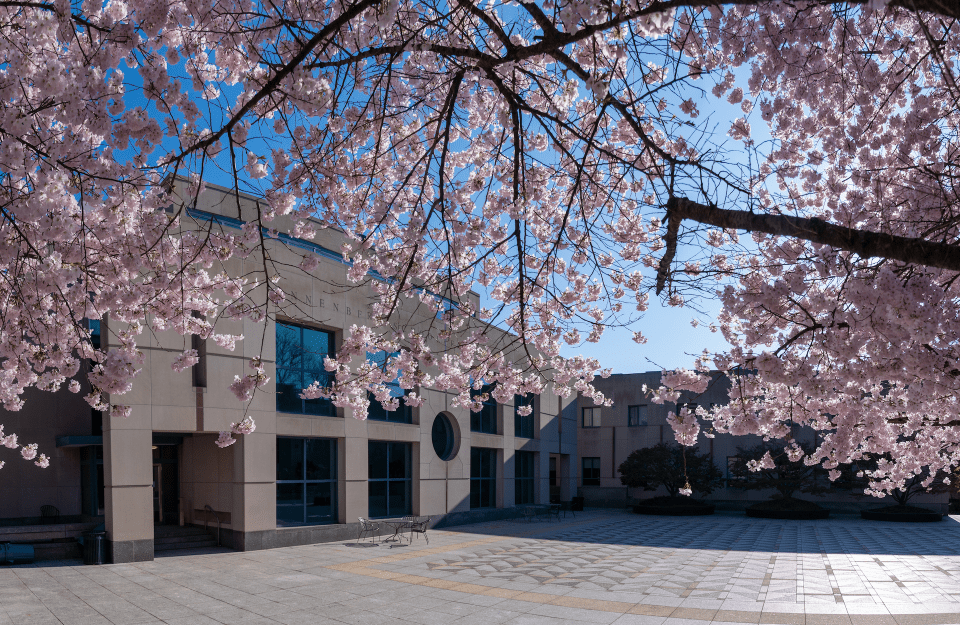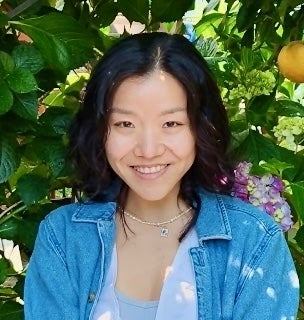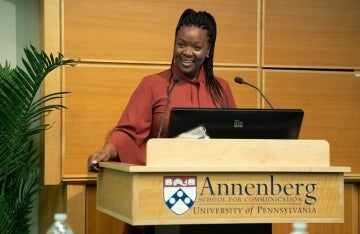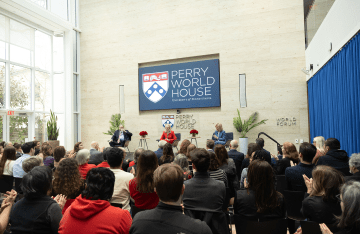The Center for Advanced Research in Global Communication Welcomes Another Postdoctoral Fellow for 2024-25
Ennuri Jo will join the Annenberg School in the fall.

The Center for Advanced Research in Global Communication (CARGC) at the Annenberg School for Communication at the University of Pennsylvania is excited to announce that a second film and media scholar, Ennuri Jo, will join the center this fall as a postdoctoral fellow.
Dr. Jo emerged from a highly competitive pool of over one hundred applicants from around the world. She will join current CARGC postdoctoral fellow Zehra Husain and incoming postdoctoral fellow Sima Kokotović for the 2024-2025 academic year. With expertise in environmental media and technology, Dr. Jo will play a key role in developing the center's "Critical Currents: Media Environments and the Climate Crisis" research theme.
"Understanding the relationship between media, environments, and climate through a critical and theoretically rich perspective, as Ennuri's work does, is more important than ever," states CARGC Associate Director Juan Llamas-Rodriguez. "I look forward to the insights she will bring to ongoing CARGC projects and the collaborations she will facilitate across Penn."
The center's Director, Aswin Punathambekar, agrees. "Ennuri Jo is the ideal scholar to build CARGC's research focus on how visual media cultures shape public perceptions of the climate crisis," says Punathambekar. "Jo's transnational approach and focus on water as a key arena around which to stage and explore the state of our planet could not be more timely, and I look forward to seeing how her work evolves at CARGC, Annenberg, and Penn during the coming year."

Ennuri Jo studies intersections of film theory, early cinema and global ecomedia, and theories of technology. Her first project and book-in-progress “Aqueous image: cinema and the rhetoric of water at the end of the world” considers water as an epistemological figure in the history of world cinema that complicates one’s experience of the image, the relationship between nature and technology, and our understanding of the climate crisis. At CARGC, she will work on additional chapters to the manuscript in which she will expand the project’s cinema-specific focus to include architectural media, social sculptures, process-based art, and land art in aqueous environments. Her second project considers contemporary media narratives of the secular post-apocalypse that, instead of perpetuating anthropocentric and nervous visions of the end, conjure a nonhuman, multi-species, and machinic sensibility that helps us envision a more sustainable relationship to the world.
"As someone who has been writing about water-as-media in the field of Cinema and Media Studies, I am excited to both contribute to and learn from CARGC’s wider and more heterogeneous approach to the study of global media," says Jo. "I hope that my research on the representations of the global climate crisis and theories of technology will be a timely and animating contribution to the Center’s intellectual community."



